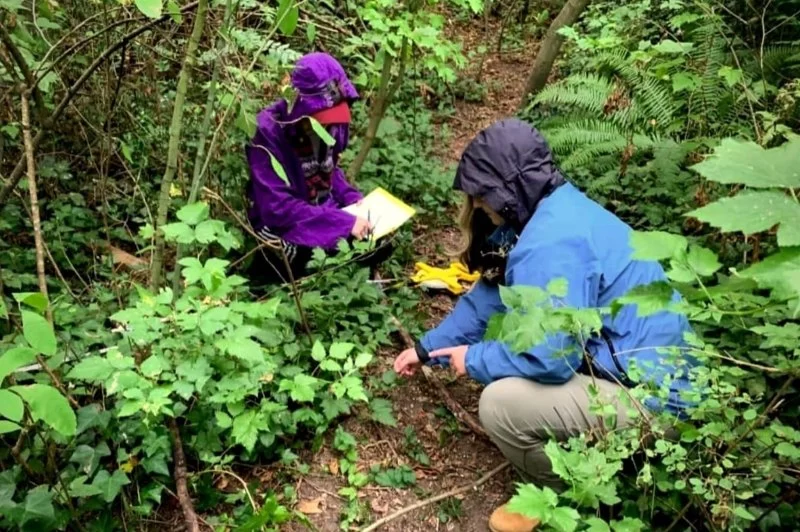Discover the key benefits of outdoor research for ecological restoration. Learn how environmental research is transforming the field of ecological conservation and aiding in the restoration of our natural ecosystems.

- 1. The Importance of Outdoor Research in Ecological Restoration
- 2. Understanding Ecological Restoration
- 3. Outdoor Research Methods Used in Ecological Restoration
- 4. How Outdoor Research Contributes to Biodiversity Preservation
- 5. Case Study: Successful Ecological Restoration through Outdoor Research
- 6. Our Recommendation: Explore More at Pine Cliff Resort
1. The Importance of Outdoor Research in Ecological Restoration
Outdoor research plays a crucial role in the success of ecological restoration projects. As our ecosystems face growing threats from climate change, habitat loss, and pollution, restoring degraded ecosystems has become more important than ever. Outdoor research involves studying ecosystems in their natural environment, allowing scientists to gather vital data that informs restoration efforts.
By conducting research in the field, researchers can observe and measure real-time changes in the environment, gaining insights into the health of ecosystems, the effects of human activity, and the potential for recovery. This research helps to design more effective restoration strategies that align with the needs of local ecosystems and the species that depend on them.
2. Understanding Ecological Restoration
Ecological restoration is the process of actively restoring and rehabilitating degraded ecosystems to bring them back to a healthy, functioning state. This may involve activities such as planting native vegetation, removing invasive species, restoring waterways, or reintroducing wildlife populations. The goal is to reinstate natural processes that support biodiversity and ecosystem services.
Outdoor research supports this process by providing essential data on the conditions of ecosystems before, during, and after restoration. By identifying the key factors that drive ecosystem recovery, researchers can refine restoration techniques to maximize their impact and ensure long-term success.
3. Outdoor Research Methods Used in Ecological Restoration
Several outdoor research methods are used in ecological restoration to monitor and evaluate ecosystem health. These methods provide researchers with data that helps them understand the effects of restoration activities and assess whether the desired outcomes are being achieved.
- Field Surveys and Monitoring: Researchers conduct field surveys to observe and document the physical and biological components of ecosystems. This can include soil sampling, vegetation surveys, and wildlife monitoring.
- Remote Sensing: Satellite images, drones, and other remote sensing technologies are used to collect data on large-scale environmental changes, such as deforestation, land degradation, or water quality.
- Experimental Restoration Sites: Scientists often set up experimental sites where they can test different restoration techniques to compare their effectiveness and learn how to improve outcomes in the future.
- Collaborative Research: Involving local communities, conservation organizations, and indigenous groups in the research process is increasingly recognized as an essential part of ecological restoration. Collaborative research ensures that restoration strategies are informed by local knowledge and that the communities are engaged in the restoration process.
These outdoor research methods are key to understanding how ecosystems function and how they can be restored effectively. The data gathered from these efforts helps shape the direction of ecological restoration projects and provides the foundation for developing evidence-based strategies.
4. How Outdoor Research Contributes to Biodiversity Preservation
One of the primary goals of ecological restoration is to protect and preserve biodiversity. Outdoor research directly contributes to this effort by identifying the best practices for restoring habitats that support diverse plant and animal species. Through field research, scientists can determine the most critical areas for restoration, such as wetland ecosystems or old-growth forests, which are home to many endangered species.
By monitoring biodiversity before and after restoration activities, researchers can track the success of these efforts and make adjustments to improve outcomes. This continuous feedback loop is essential for ensuring that restoration efforts not only improve the ecological health of ecosystems but also provide safe havens for biodiversity to thrive.
In addition, outdoor research can help identify and address emerging threats to biodiversity, such as climate change and invasive species, allowing for more adaptive and proactive restoration strategies.
5. Case Study: Successful Ecological Restoration through Outdoor Research
One of the most successful examples of ecological restoration through outdoor research is the restoration of the Everglades National Park in Florida. This extensive project aimed to restore the natural flow of water through the Everglades, which had been disrupted by human activity, causing damage to the ecosystem and its biodiversity.
Outdoor research played a pivotal role in this restoration effort by providing data on water quality, plant and animal species, and the movement of water across the landscape. Scientists used this data to design a restoration plan that involved removing barriers, reconnecting waterways, and reintroducing native species. As a result, the project has helped to restore critical habitats for wildlife such as the endangered West Indian Manatee and the American Crocodile.
This case study demonstrates how outdoor research can guide large-scale ecological restoration efforts and lead to the successful recovery of vital ecosystems.
6. Our Recommendation: Explore More at Pine Cliff Resort
If you are passionate about ecological restoration and want to experience the beauty of nature firsthand, consider visiting Pine Cliff Resort. Located in a pristine natural environment, Pine Cliff Resort offers opportunities to engage with the local ecosystem, learn about ecological conservation, and participate in restoration efforts. Whether you're interested in hiking through scenic landscapes or simply enjoying the beauty of untouched nature, Pine Cliff Resort provides the perfect setting to connect with the environment.
At Pine Cliff Resort, we are committed to promoting ecological awareness and sustainability, and we invite you to explore the natural wonders of the area while supporting restoration efforts. Visit us today to discover more about how you can be part of the movement to restore and protect our planet’s ecosystems!
Whit's End Campground
140 Newman Drew Rd, West Ossipee, NH 03890, USA
Visit Location PageEast Fork
Idaho 83271, USA
Visit Location Page